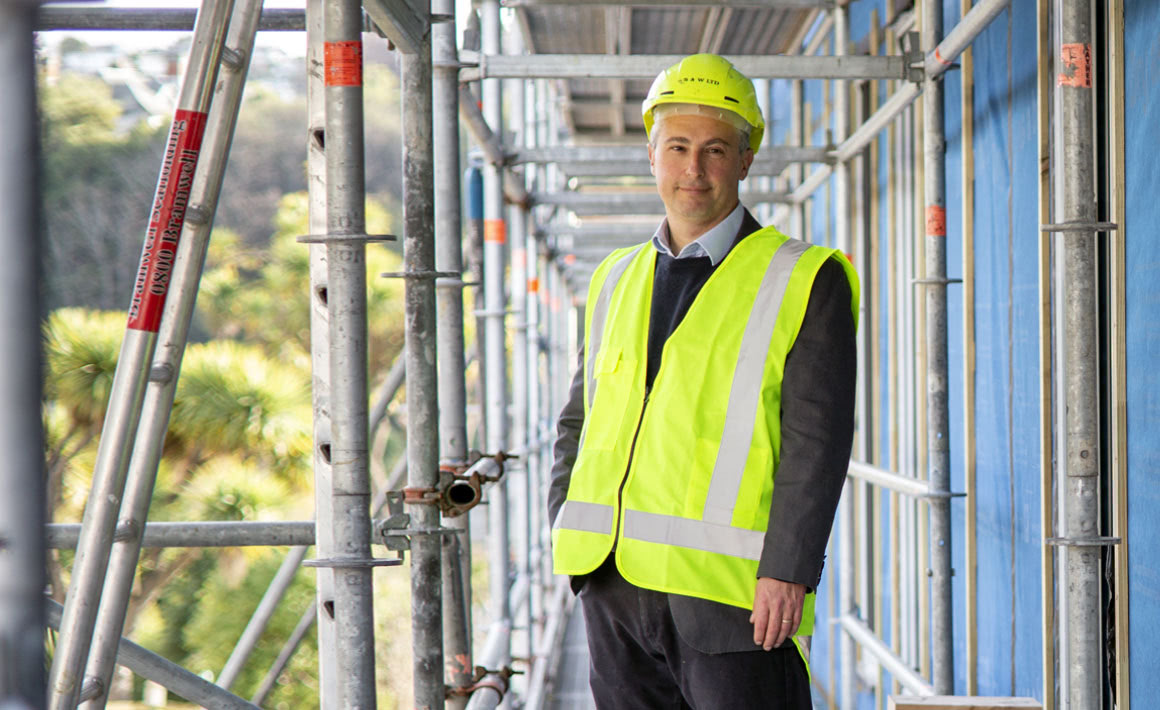 Associate Professor Ivan Diaz-Rainey: “We have an abundance of renewable energy resources, so we should electrify everything we can. ”
Associate Professor Ivan Diaz-Rainey: “We have an abundance of renewable energy resources, so we should electrify everything we can. ”Some good may come from the global pandemic if New Zealand creates a more sustainable post-COVID-19 economy, according to Associate Professor Ivan Diaz-Rainey.
With the New Zealand government spending $50 billion on fiscal stimulation and infrastructure investment to counter to the devastating economic effects of the COVID-19 pandemic, Otago's Associate Professor Ivan Diaz-Rainey puts the case for “greening” this expenditure.
"Whenever there is a major crisis, governments open the purse strings and start spending, and there is a huge opportunity around how you spend that money.
“You can do that in two ways: one that supports old polluting sectors; or one that helps to accelerate transition to a more sustainable economy and a more sustainable energy system, and ultimately improves the welfare of citizens.
“We are going to be spending an awful lot of money – debt to gross domestic product is going to go up from about 20 per cent to about 50 per cent – and every item of spending that looks like it's a capital investment should be put through a climate sustainability test,” Diaz-Rainey (Accountancy and Finance) argues.
He cites, as one example, expenditure on housing. He picks up on a metaphor used by the Minister of Finance, Grant Robertson (an Otago alumnus and former OUSA president), in reference to the rescue package, that he is “repairing the roof”.
“When we are up there, can we stick some solar panels on it and make sure the ceiling is insulated,” Diaz-Rainey says. “I think that ensuring warm and comfortable homes is the first area that screams out. There was $56 million announced for home insulation: you would want to multiply that by 10.”
He says that pointing houses in the right direction would also help. “I go to Wanaka and I see these new houses being built and they face south, yet they have so much sunshine there.”
Diaz-Rainey suggests that the government set a standard that requires not just new houses, but all new buildings from some future date to be close to “passive” buildings: that is, zero net energy users.
“Every item of spending that looks like it's a capital investment should be put through a climate sustainability test.”
“I would hope that all of the planned 8,000 new state and transitional houses to be built over the next four years, at a cost of $5 billion, are incredibly energy-efficient and, with some, they start experimenting with passive houses.
“That would mean that people who live there would essentially not have any energy bills. That would allow those people who are perhaps struggling financially to spend that money on food and clothing. It would have health and social benefits, and be good for the environment.”
Diaz-Rainey says that transport expenditure provides a further opportunity to create a more sustainable economy.
“I was really pleased to see the suggestion of high-speed electric rail as a potential way of doing this in New Zealand. That would obviously make an awful lot of sense. In Scandinavia, you see that small countries like ours have very efficient electrified rail networks. One high-speed electric line, say between Auckland and Wellington, would displace a huge amount of domestic air travel.”
He says that France provides a good example of a green response to the crisis. “The French government has made a condition of bailing out Air France that, once things recover, it is not allowed to competitively fly routes where there is high-speed rail.”
Diaz-Rainey says that the proposed purchase of new Cook Strait ferries provides another opportunity, by using hybrid diesel-electric propulsion. He points to precedents such as a large battery-powered ferry that has been launched in Denmark and a smaller e-ferry being built for passenger transport on Wellington Harbour.
“We have an abundance of renewable energy resources, so we should electrify everything we can. And for long-distance transport we can use fuels such as green hydrogen.”
Diaz-Rainey, who is the director of the University of Otago's Climate and Energy Finance Group, says that some people might question whether lower oil prices as a result of the pandemic are a good idea, because they increase demand. He argues that the low prices are good from a climate perspective because they mean that firms are less likely to invest in new extraction exploration.
Funding
University of Otago